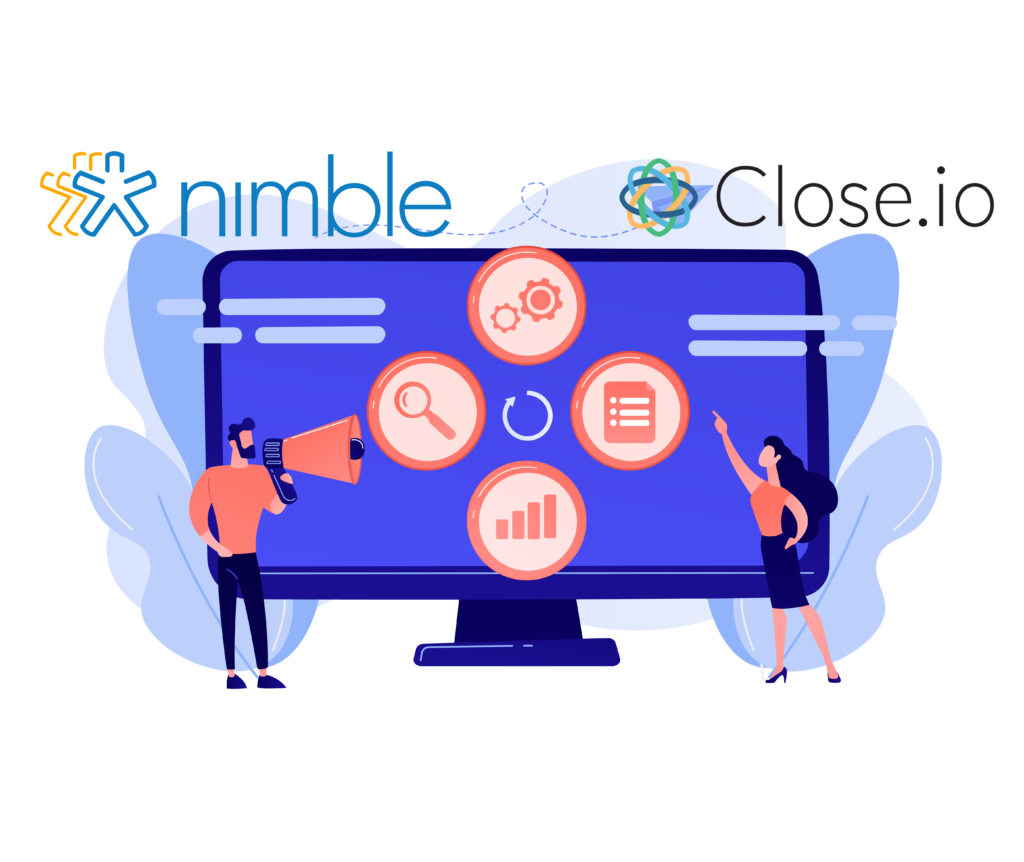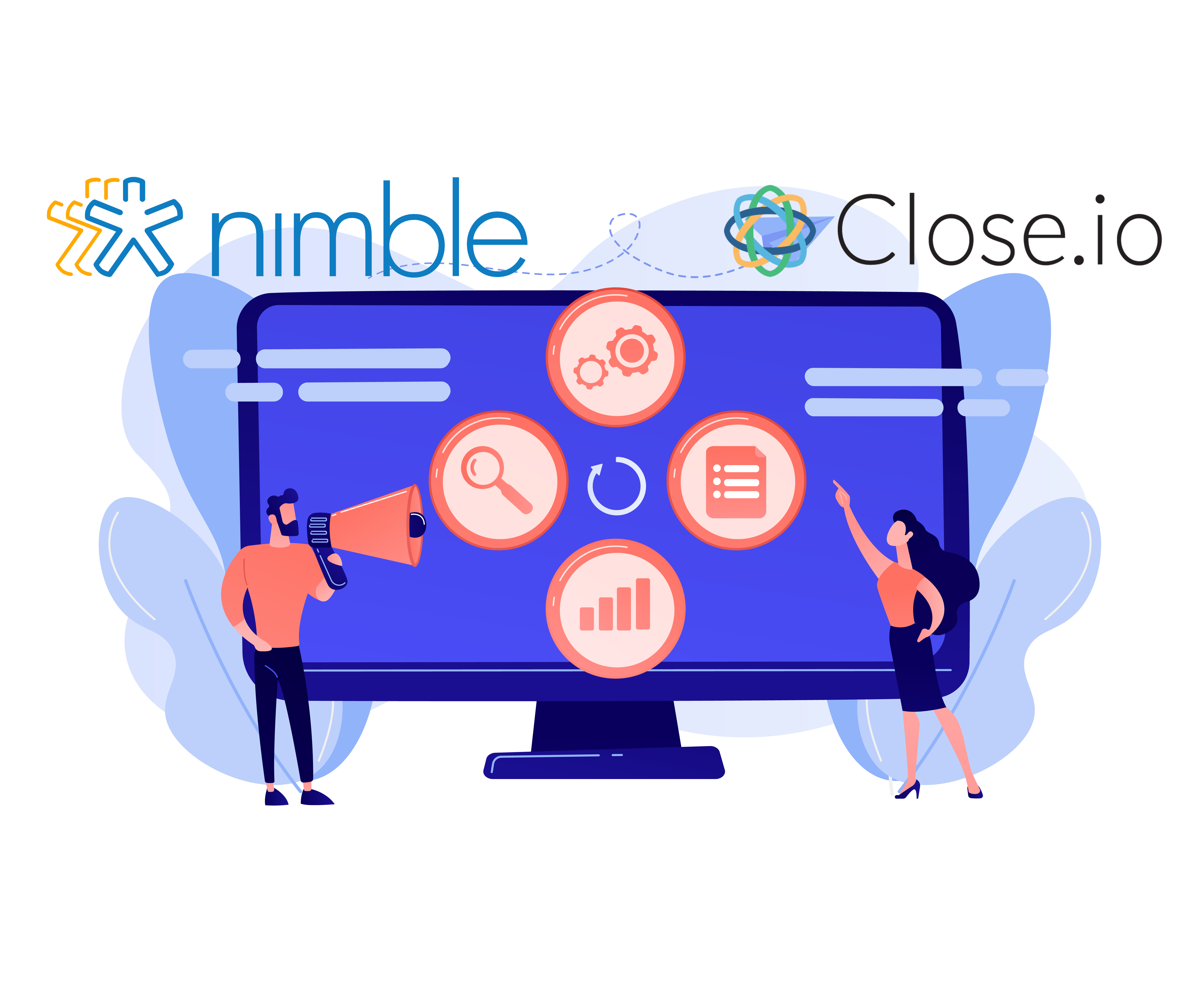In today’s fast-paced business environment, companies need to adapt quickly to stay competitive. One of the key ways to do this is by being nimble and agile. However, there is a difference between being nimble and being close to customers, which can impact a company’s success. In this article, we’ll explore the difference between nimble and close, and why both are important for businesses to consider.

What does it mean to be Nimble?
Nimble companies are those that can quickly and efficiently respond to changes in the marketplace. They are agile and adaptable, able to pivot their strategies and operations to keep up with new trends, technologies, and consumer demands. Being nimble means being able to anticipate challenges and opportunities, and quickly adjust course to take advantage of them.
Some characteristics of nimble companies include:
• Embracing change and innovation
• Focusing on speed and efficiency
• Being data-driven and metrics-oriented
• Encouraging experimentation and risk-taking
• Prioritizing agility and adaptability
What does it mean to be Close?
Being close to customers means having a deep understanding of their needs, preferences, and pain points. Companies that are close to their customers are able to develop products and services that meet those needs, and to provide excellent customer service and support. By being close to customers, companies can build strong relationships and loyalty, which can lead to repeat business and positive word-of-mouth referrals.
Some characteristics of companies that are close to their customers include:
• Listening carefully to customer feedback
• Being responsive to customer needs and concerns
• Providing personalized service and support
• Building strong relationships and trust
• Anticipating customer needs and proactively addressing them
Nimble vs Close: Why Both are Important
While being nimble and close to customers may seem like competing priorities, they are actually both essential for business success. Here are some reasons why:
• Nimbleness enables companies to respond quickly to changes in the market, which can help them stay ahead of the competition. However, without a deep understanding of customers’ needs and preferences, companies may miss the mark in terms of developing products and services that meet those needs.
• Being close to customers allows companies to develop products and services that meet their needs, which can help build strong relationships and loyalty. However, without the ability to pivot and adapt quickly, companies may struggle to keep up with changing trends and technologies.
• Combining nimbleness and closeness allows companies to be both customer-focused and adaptable. By listening carefully to customer feedback and being responsive to their needs, companies can develop products and services that are relevant and effective. At the same time, by being agile and adaptable, companies can quickly adjust course to take advantage of new opportunities and stay ahead of the competition.
Tips for Being Nimble and Close
If you want your company to be both nimble and close to customers, here are some tips to consider:
• Build a culture of innovation and experimentation: Encourage your team to think outside the box and to try new things. Create a safe space for experimentation and failure, and celebrate successes and learnings along the way.
• Listen carefully to customer feedback: Solicit feedback from customers regularly, and use that feedback to inform product development and customer service improvements.
• Prioritize speed and efficiency: Look for ways to streamline operations and reduce friction in the customer experience. This can include everything from optimizing your website for faster load times to automating certain processes.
• Anticipate customer needs: Stay ahead of the curve by anticipating customer needs and proactively addressing them. This could mean developing new products or services, or providing additional support or resources.
• Develop strong relationships with customers: Focus on building trust and loyalty with your customers by providing excellent customer service and personalized support. Look for opportunities to go above and beyond to exceed their expectations.
• Stay agile and adaptable: Be prepared to pivot and adjust course as needed in response to changes in the market or customer needs. This may mean re-evaluating your product roadmap, revising your marketing strategy, or making other changes to your business operations.
let’s expand on the features, pros, and cons of being nimble and close to customers.
Features of Being Nimble:
• Embracing change and innovation: Nimble companies are open to new ideas and willing to experiment with new technologies and strategies.
• Focusing on speed and efficiency: Nimble companies prioritize efficiency and are always looking for ways to streamline processes and reduce friction.
• Being data-driven and metrics-oriented: Nimble companies use data to inform their decision-making and measure the effectiveness of their strategies.
• Encouraging experimentation and risk-taking: Nimble companies create a culture that encourages employees to take risks and try new things.
• Prioritizing agility and adaptability: Nimble companies are able to pivot quickly in response to changes in the market or customer needs.
Pros of Being Nimble:
• Ability to respond quickly to changes: Nimble companies can adapt quickly to changing market conditions or customer needs, which can give them a competitive advantage.
• Greater innovation: Nimble companies are more likely to innovate and develop new products or services that meet emerging customer needs.
• Improved efficiency: By streamlining processes and reducing friction, nimble companies can operate more efficiently and effectively.
• Better employee morale: Nimble companies tend to have a more positive and engaged workforce, as employees feel empowered to take risks and try new things.
Cons of Being Nimble:
• Lack of stability: Nimble companies may struggle to maintain stability and consistency over the long term, as they are always adapting to new conditions.
• Risk of failure: Nimble companies that take too many risks or fail to adapt quickly enough may struggle to survive.
• Difficulty maintaining focus: Nimble companies may struggle to maintain focus on their core mission or values if they are constantly pivoting in response to new opportunities.
Features of Being Close:
• Listening carefully to customer feedback: Close companies prioritize listening to customer feedback and incorporating that feedback into their products and services.
• Being responsive to customer needs and concerns: Close companies are quick to address customer needs and concerns, which helps build strong relationships and trust.
• Providing personalized service and support: Close companies prioritize providing personalized service and support to each customer.
• Building strong relationships and trust: Close companies build strong relationships with customers through personalized service, responsive support, and a deep understanding of their needs and preferences.
• Anticipating customer needs and proactively addressing them: Close companies are able to anticipate customer needs and proactively address them, which helps build loyalty and long-term relationships.
Pros of Being Close:
• Strong customer loyalty: Close companies are able to build strong relationships with customers, which can lead to repeat business and positive word-of-mouth referrals.
• Better understanding of customer needs: Close companies have a deep understanding of customer needs and preferences, which helps them develop products and services that meet those needs.
• Improved reputation: Close companies are known for providing excellent customer service and support, which can improve their reputation and attract new customers.
Cons of Being Close:
• Risk of becoming too focused on the customer: Close companies may become so focused on the needs of individual customers that they lose sight of the bigger picture.
• Difficulty scaling: Close companies may struggle to scale their operations or replicate their success across multiple locations or markets.
• Risk of stagnation: Close companies may become too focused on meeting the needs of existing customers and fail to innovate or adapt to changing market conditions.
Overall, both nimbleness and closeness are important for business success. By combining the benefits of both, companies can create a winning formula that helps them stay ahead of the competition, deliver value to their customers, and achieve long-term success.
Conclusion
In today’s business landscape, companies need to be both nimble and close to customers in order to stay competitive. By being agile and adaptable, companies can respond quickly to changes in the market and take advantage of new opportunities. At the same time, by being close to customers, companies can develop products and services that meet their needs and build strong relationships and loyalty.
While there may be some tension between these two priorities, the reality is that they are both essential for business success. By prioritizing both nimbleness and closeness, companies can create a winning formula that helps them stay ahead of the competition and deliver value to their customers.
Other Alternative
Simply CRM is a cloud-based customer relationship management (CRM) software that is designed to help businesses manage their customer relationships and sales processes. It offers a range of features and tools that can help businesses streamline their sales processes, track customer interactions, and improve customer engagement.
One of the key features of Simply CRM is its contact management tools. The software allows businesses to store all of their customer information in one central location, making it easy to access and update customer records as needed. Businesses can also segment their customer database based on various criteria, such as demographics, purchase history, and engagement level, allowing them to target specific groups with personalized marketing campaigns.
Simply CRM also offers sales pipeline management tools that allow businesses to track their sales processes from start to finish. The software provides a visual pipeline view of all open deals, allowing businesses to see where each deal is in the sales process and identify potential bottlenecks. This can help businesses prioritize their sales activities and focus on deals that are most likely to close.
In addition to its sales pipeline management tools, Simply CRM also offers marketing automation tools that can help businesses streamline their marketing processes. The software allows businesses to create and send email campaigns, track website visitors, and monitor social media engagement, all from within the platform. This can help businesses improve their customer engagement and drive more leads and sales.
Simply CRM also offers a range of other features, including task management tools, team collaboration tools, and reporting and analytics tools. The software is designed to be easy to use, with a simple and intuitive user interface that requires no technical expertise. It also offers a range of integrations with other popular business tools, such as Zapier, Mailchimp, and QuickBooks.
Overall, Simply CRM is a powerful and versatile CRM software that can help businesses of all sizes manage their customer relationships and sales processes more effectively. Its range of features and intuitive user interface make it a popular choice for businesses looking to improve their customer engagement and drive more sales.




